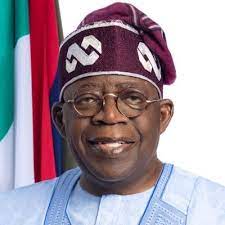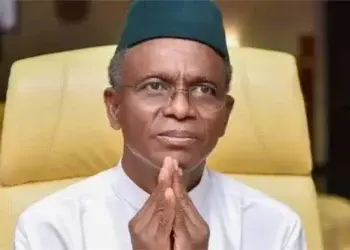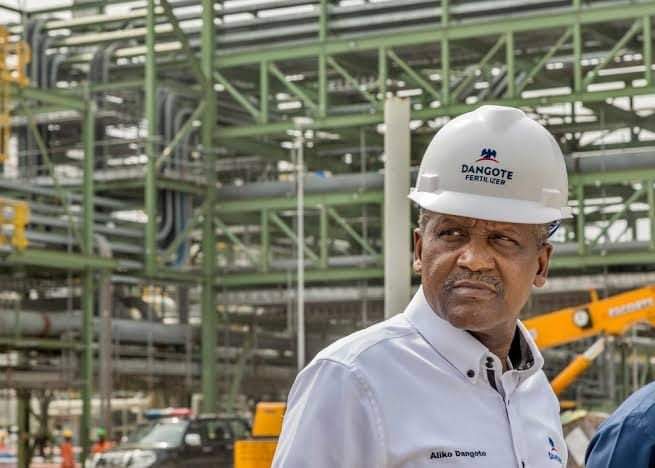President Bola Ahmed Tinubu has explained his choice to unify exchange rates and reject arbitrage opportunities, highlighting his commitment to safeguarding the country’s financial stability.
President Bola Ahmed Tinubu has expressed his deliberate choice to unify the official and parallel market exchange rates, setting aside personal gains in favour of preserving the nation’s financial well-being. Speaking at a civic reception held in his honour by the Lagos State Government, President Tinubu emphasized his commitment to the best interests of the Nigerian people, paralleling his previous stance on fuel subsidy removal.
Decisive Actions For Financial Stability
According to President Tinubu, taking prompt and decisive actions during the early stages of his administration was imperative. Addressing the issue of fuel subsidy, he emphasized the necessity to curtail the financial bleeding and reiterated that the government had no alternative but to act swiftly. Furthermore, as a means to ensure the effective utilization of available resources, President Tinubu pledged to re-engineer the control and management of these resources, thereby fulfilling the obligations owed to the Nigerian people by political officeholders.
Re-engineering Resource Management For National Obligations
In the pursuit of efficient resource management, President Tinubu emphasized the need to meet the obligations owed to Nigerian citizens. To achieve this, the government aims to enhance the effectiveness of resource control and management. By implementing robust measures, President Tinubu intends to optimize the utilization of resources, ultimately benefiting the entire nation.
Building Partnerships For National Development
President Tinubu seized the opportunity to call for the collaboration of the governors present at the reception, emphasizing the significance of fostering even development across the country. Stressing an open-door policy, he expressed his determination to guide Nigeria towards a resilient economy. President Tinubu urged the governors to join forces with him in a united effort to rescue the nation and steer it towards transformation.
Gratitude And Commitment From Governors And Political Leaders
Acknowledging the reception organized by the Lagos State Government and the attendance of his friends and associates, President Tinubu conveyed his heartfelt appreciation.
He apologized to those friends in the audience who had longed to meet him but were unable to due to the demands of his office. He emphasized that the magnitude of the assignment required dedication beyond the confines of comfort, emphasizing the importance of prioritizing the responsibilities of his role.
Lagos State Governor Babajide Sanwo-Olu, expressing overwhelming joy, extended gratitude to God for the leadership of President Tinubu. Describing him as a competent manager of human and financial resources, Governor Sanwo-Olu praised President Tinubu’s ability to transform the economic fortunes of the country.
Kwara State Governor and Chairman of the Nigeria Governors’ Forum (NGF), Abdulrahman AbdulRazaq, pledged the collective cooperation of state chief executives, irrespective of party affiliations, to work alongside President Tinubu. The NGF expressed excitement over the fact that both the President and Vice President were alumni of the forum. They affirmed their support for a renewed hope agenda, emphasizing their commitment to work with a federalist leader within a truly federal system.
Senator Godswill Akpbio, speaking on behalf of the National Assembly, expressed gratitude to President Tinubu for his leadership in facilitating the smooth commencement of the 10th National Assembly. He assured the President of the Assembly’s unwavering support, promising to utilize all legislative means to ensure his success in achieving the nation’s goals.
Former Governor of Lagos, Mr Babatunde Fashola, who previously served as the Minister of Works and Housing, appealed to governors and Nigerians alike, emphasizing that the task of remaking Nigeria should not rest solely on the President’s shoulders. Fashola stressed the importance of replicating good governance practices across all 36 states, urging collective efforts towards national development.
Reflecting on the historical significance, Pa Tajudeen Olusi, the leader of the Lagos Governor’s Advisory Council (GAC), acknowledged the pivotal role played by Lagos in shaping the political landscape of Nigeria.
Olusi expressed gratitude that Nigeria finally had a President from Lagos, highlighting the state’s longstanding contribution to the nation’s political evolution since the era of Herbert Macaulay.
President Bola Ahmed Tinubu’s decision to unify exchange rates and reject arbitrage opportunities demonstrates his commitment to Nigeria’s financial stability and national interest.
Through decisive actions and resource management reforms, he aims to address critical issues and ensure the effective utilization of resources. With the support of governors, political leaders, and the National Assembly, President Tinubu envisions a collaborative effort towards transforming Nigeria into a resilient and prosperous nation. The reception organized by the Lagos State Government served as a platform to express gratitude and reinforce the collective commitment to national development.











